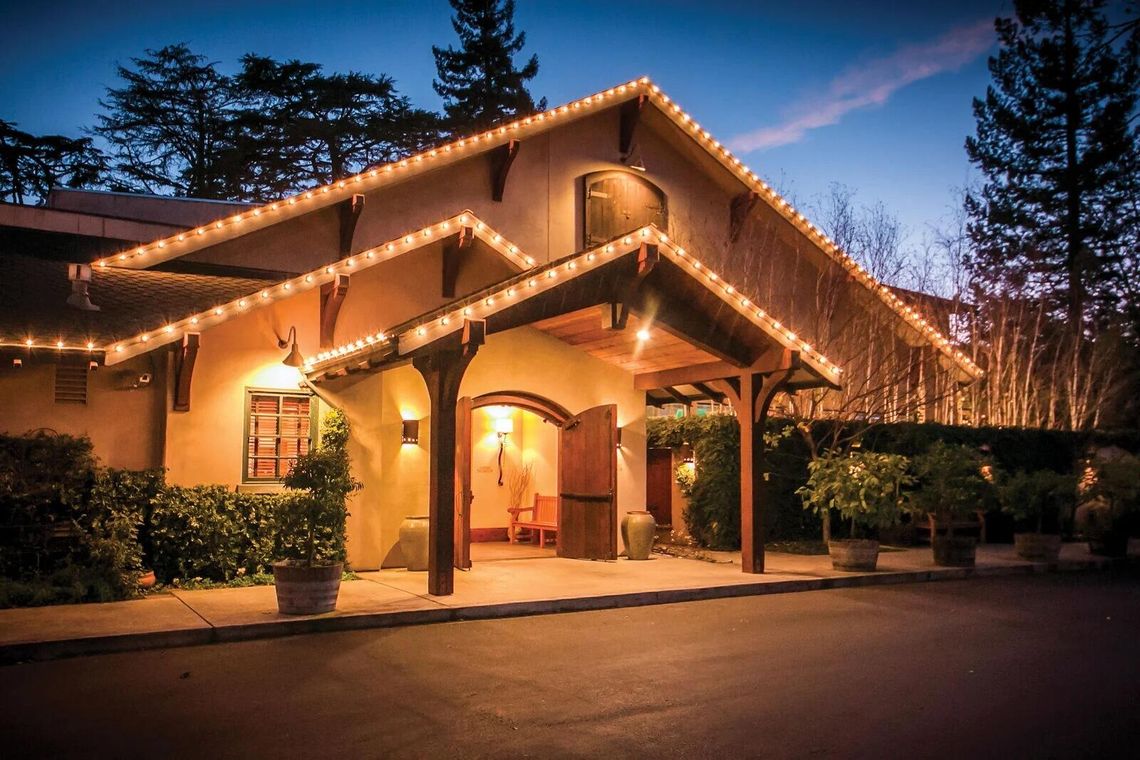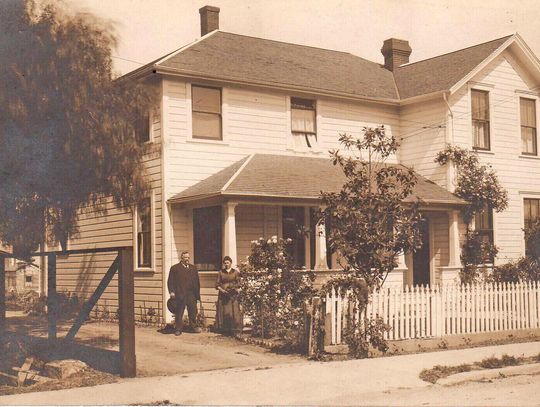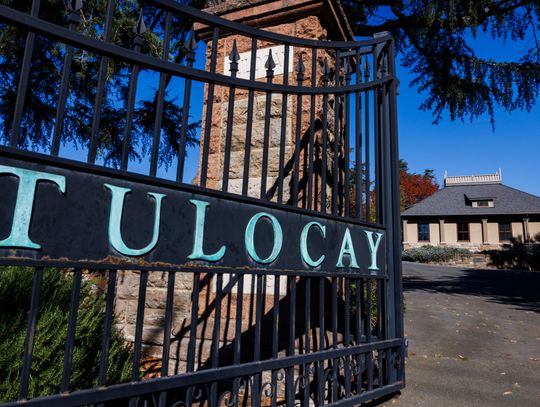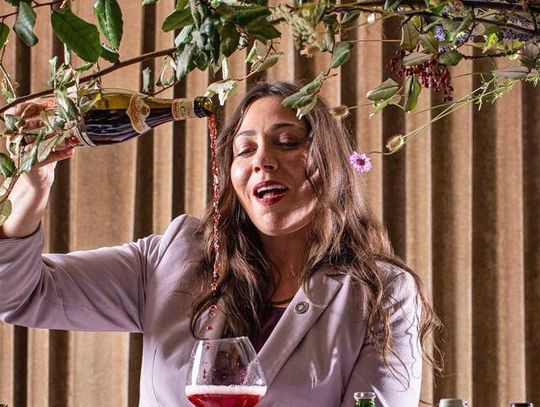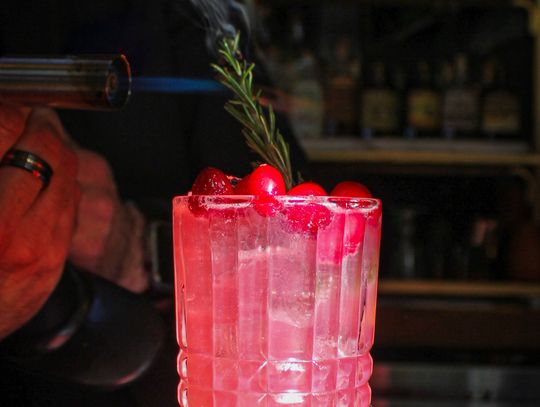East along the dusty roads of Highway 12, way past Fairfield, and beyond the wind-powered generators that dot the landscape like a sci-fi fever dream, lies Lodi, arguably the capital of California’s largest, if under-the-radar, winemaking region.
The northernmost city in San Joaquin County, if considered by the state’s more coastal inhabitants, may more be as answers to particularly tricky “Jeopardy!” questions than anything else. (“Where was the A&W fast-food franchise founded?” “What Central Valley town is frequently mentioned in the biker drama ‘Sons of Anarchy’?”) The more musically inclined may already be humming the Creedence Clearwater Revival song. “Oh Lord, I’m stuck in Lodi again …” (Random fact: Members of the El Cerrito-founded band had never been to the city before recording the song; they just liked the name of the place.)
Despite all this, a remarkable — and likely surprising to those not in the biz — amount of wine grapes are grown here. According to the latest California Grape Crush report, the Lodi region sold about 361,000 tons of red grapes and 241,000 tons of white grapes in 2024, or nearly 21% of the statewide total. (For the sake of comparison, Napa’s grape growers sold around 83,000 tons of red grapes and 44,000 tons of white in 2024, a bit more than 4% of the overall total.)
Hoteliers and restaurateurs have taken notice. Lodi’s central-ish location — roughly 90 minutes from the Bay Area and under two hours from many parts of Silicon Valley or Sacramento — and its affordability (for those weary of $125 tasting fees) make it poised for a tourism boost. In recent years, entrepreneurs have been working to capitalize on this potential for Bay Area and Southern California day-trippers and wine tourists — perhaps even a wedding party or two.
Enter Appellation Lodi, the debut property of the brand co-founded by celebrity chef Charlie Palmer and luxury hotel veteran Christopher Hunsberger. The pair partnered with Wine & Roses owners Russ and Kathryn Munson to upgrade the storied institution from a local gem into a regional culinary-centric treasure. Opened to guests in June, the hotel features a French-style bakery and coffeeshop, a fine-dining restaurant, a well-appointed spa, a half-dozen event spaces, and luxuriously landscaped grounds.
“We’ve always been fortunate to have a loyal following from within the region, and we’ll never lose that local connection,” Russ Munson said. “But yes, this partnership is very much about broadening our reach. ... We believe this will bring new visitors to Lodi while still feeling like home for our community.”
The driveway on the resort may be smooth and the property meticulous, but the road for Appellation as a brand has had a few bumps.
The planned Appellation Petaluma project, one of two planned hotels in Sonoma County, has faced a series of local challenges, including vocal opposition from preservationists concerned about the scale of the development. In contrast, projects in Morgan Hill and Healdsburg have made significant strides, with progress becoming particularly apparent in Healdsburg, where the brand plans to open its flagship location in September.
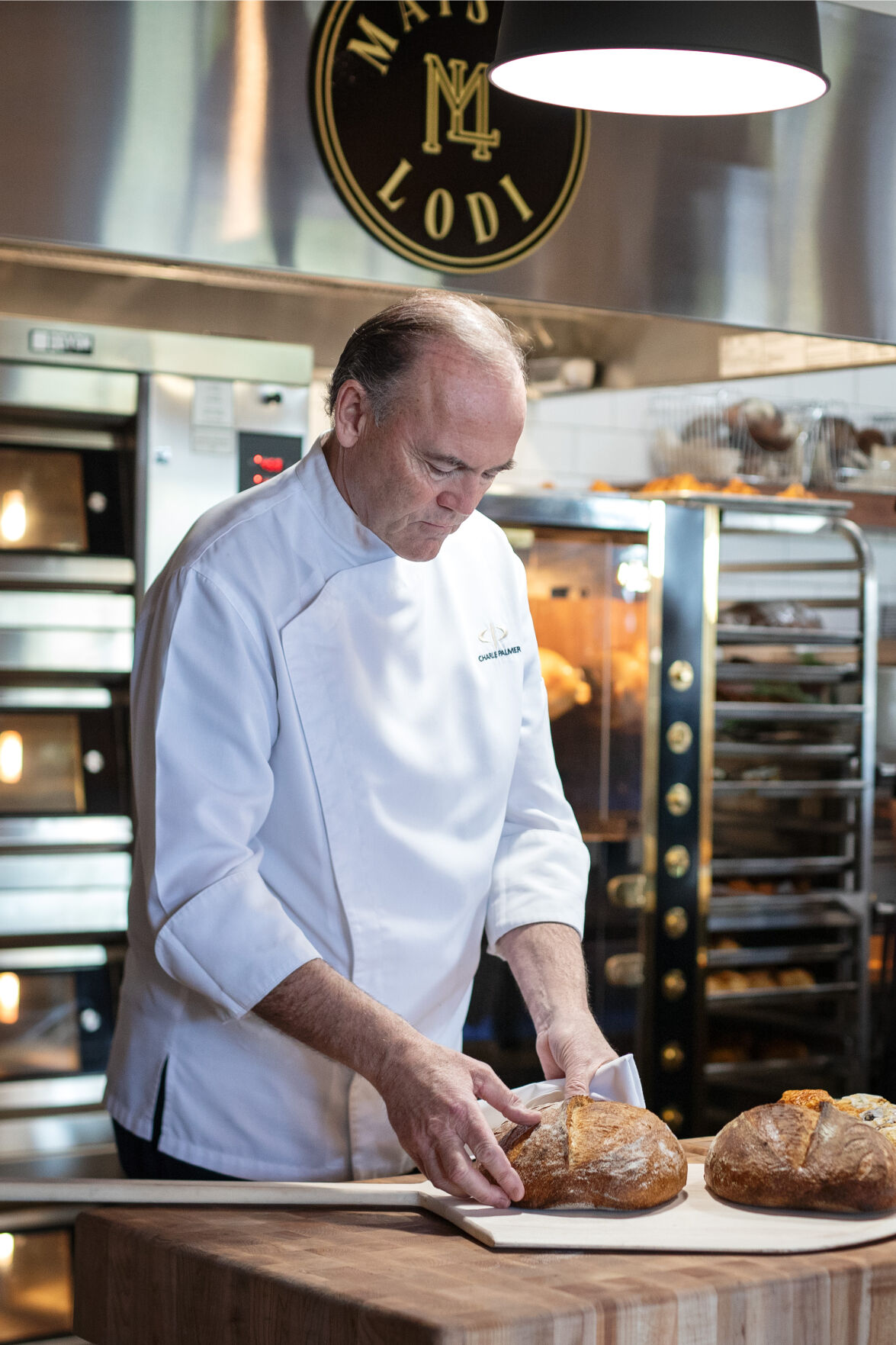
Still, all is well and operational in the Central Valley.
For those unfamiliar with Lodi beyond pop culture mentions, the numbers speak libraries. Wine Libraries. The region encompasses over 85 boutique wineries and around 750 grape growers, according to the Lodi Winegrape Commission, growing more than 100 different grape varieties. Though Lodi has historically been known for more value-oriented (read: cheaper) wines, local reviewers and bloggers are noting growers and winemakers have been working to increase quality as of late, making the current moment an opportune one to check it out.
“For those of us who live here, Lodi has always been a great wine destination,” said Kathryn Munson. “The vineyards, the multi-generational winemakers, and the agricultural richness has always been there. What’s changing is the perception outside the area.”
Despite all this agricultural abundance and heritage — dating back to 19th-century vineyards — its tourism profile lags many acre-tons behind Napa and Sonoma. That could be changing. Though Wine & Roses has been Lodi’s premier lodging and event venue for decades, its draw has been geographically limited.
By teaming up with Appellation Hotels, the Munsons are betting on Lodi’s future as a bona fide wine country destination.
“Charlie and Chris share our belief that hospitality should be rooted in a sense of place, and their culinary-first approach brings a fresh energy to what we’ve built,” said Russ Munson. “The timing was right, Lodi’s profile is rising nationally, and we wanted to be part of shaping that story.”
Transforming a Lodi landmark into ‘Appellation Lodi’
The Munsons’ Wine & Roses property isn’t a new build — it’s a historic estate with a cat-like number of lifetimes. Starting as a working ranch more than a century ago, it later became a 10-room bed-and-breakfast, and over the years evolved into today’s 66-room boutique hotel set on seven acres of gardens.
The challenge for Palmer and Hunsberger’s team was to refresh and elevate this landmark without losing its soul.
“Wine & Roses has a strong legacy, and we wanted to preserve its spirit while bringing in the Appellation vision,” said Hunsberger. “That meant honoring the historic structures, the gardens, and the relationships that make this place special, while introducing new culinary venues, refreshed guest rooms, Lodi-inspired artwork, and enhanced outdoor spaces. Every design decision was about blending the old and the new in a way that feels seamless.”
Appellation officially took over operations in 2024 when it partnered with the Munsons, who retain ownership of the property. Over the past year, crews have been gradually updating guest rooms, common areas and culinary spaces in preparation for its grand reintroduction in June.
Hunsberger said the larger idea is for the resort to serve as a hub for the larger community, allowing visitors and locals to regularly “rub shoulders with the growers, makers and purveyors who make up the hotel’s vibrant community.”
In practice, that means weaving Lodi’s agricultural story and local craftsmanship into the fabric of the hotel’s design and programming.
A philosophy of design, food and an immersive experience
The updated rooms and suites lean bright and open, with oak furniture that looks built to last and enough texture to feel lived-in rather than staged. The colors pull straight from Lodi’s backyard — greens and eucalyptus, browns the shade of barrel staves, and golds that could pass for late-summer wheat or Chardonnay at sunset. Many spaces carry small, custom details that nod to the vineyards and farmland just outside the windows, giving the place a sense of belonging rather than just passing through.
Outside, the already green-and-growing grounds have gotten their own glow-up.
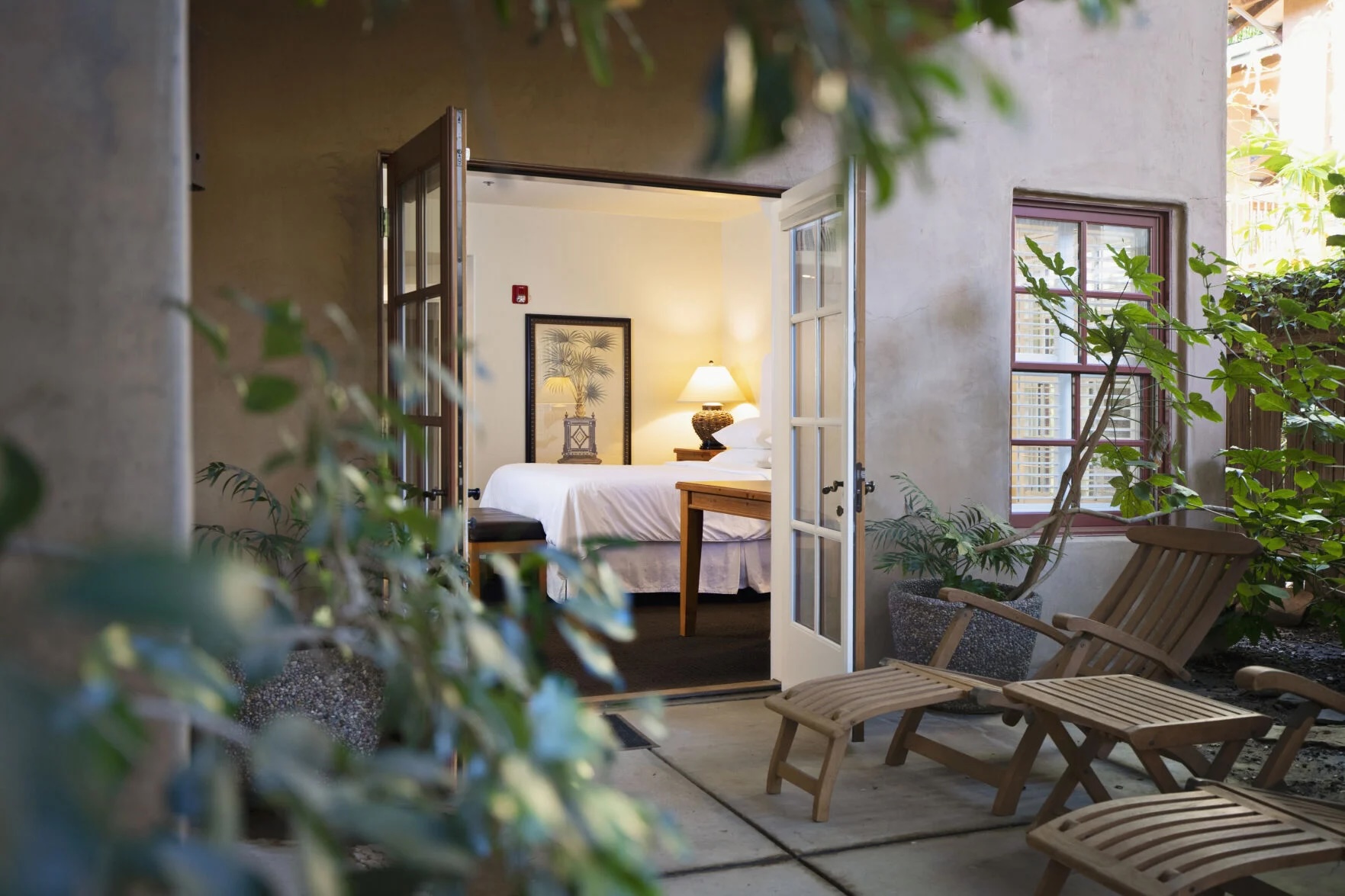
Paths snake through bigger culinary gardens, practically daring you not to wander through rows of herbs and seasonal produce. They’re not just decorative — the kitchen will be pulling from them daily, keeping the “local” in hyperlocal. Patios with fireplaces invite lingering, even after the sun drops. The spa retains its “Wine & Roses” name, a rare case of rebranding by un-rebranding. And in a move to corner the Central Valley wellness crowd, the hotel is rolling out the full lineup — yoga, meditation, even sound baths — for guests who want their relaxation with a side of intention.
There are a total of six event spaces totaling 7,000 square feet, which can accommodate up to 350 guests, making the resort an desirable option for weddings.
“The Garden Ballroom and the Cellar Room & Patio offer beautiful indoor-outdoor flow, while our manicured lawns and patios with fireplaces create romantic backdrops,” said Hunsberger. “Couples also love that guests can stay on-site, dine in our signature restaurants, and experience the spa and gardens, making it a complete destination wedding package.”
But at the core of Appellation’s brand philosophy, said Palmer, is weaving culinary artistry into every guest experience.
The famed chef, who burnished his reputation (earning a Michelin star) at Aureole and other ventures, is overseeing the new culinary program at the resort alongside chef Thomas Bellec (Appellation’s chief culinary director) and Marco Fossati (the resort’s executive chef and food and beverage director). Together, they unboxed two signature Charlie Palmer dining concepts on-site, infusing food and drink throughout the property.
“When I first came to Lodi, I felt the same spark I did in Healdsburg 20 years ago — an authenticity, an agricultural abundance, and a deep sense of community,” said Palmer. “The wines are expressive, the produce is extraordinary, and there’s a pride here that’s infectious.”
The first major debut came this February with Maison Lodi, a French-inspired bakery, café and market. Housed in the former Towne Corner Café & Market space at Wine & Roses, Maison Lodi brings the timeless craft of French baking to Lodi wine country, he said.
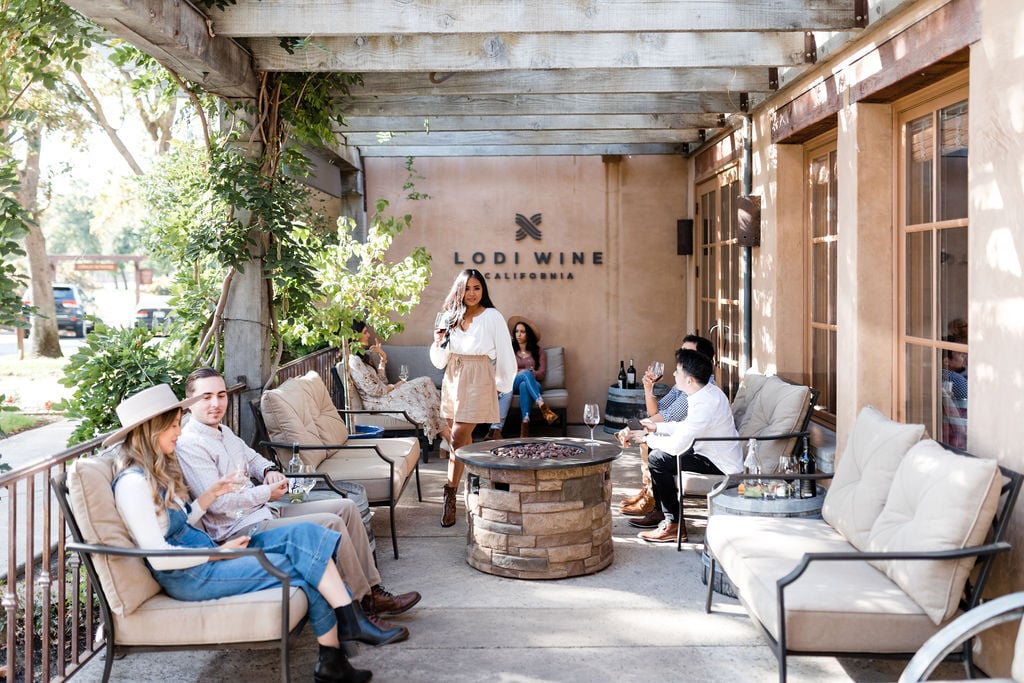
Guests and locals alike drop in for hearty levain breads, delicate pastries, and rotisserie-roasted chickens from the rotisserie oven. The concept was crafted in collaboration with Quail & Condor, an acclaimed bakery from Palmer’s hometown of Healdsburg, to ensure top-notch artisan techniques.
“Maison Lodi celebrates the timeless craft of French baking, which pairs beautifully with Lodi’s wines,” said Palmer. “Melissa Yanc at Quail & Condor initially trained our head baker and pastry chef, Anne Rosete, which now allows us to offer world-class breads, pastries and rotisserie in a warm, approachable setting.”
Appellation Lodi’s main restaurant reopened in June with a completely new identity, which Palmer called “a reimagining with respect for the past.”
The former Towne House Restaurant, a fine-dining spot long associated with Wine & Roses, is being reinvented as Americana House. Under Palmer’s direction, Americana House will showcase his hallmark “Progressive American Cooking” — a contemporary, refined take on seasonal American cuisine that highlights the bounty of local farms and vineyards.
Palmer’s team is also adding some interactive and experiential twists to Americana House. Those include a culinary counter where guests can sit right up by the open kitchen and chat with chefs while enjoying curated small bites and wine tastings. The restaurant will even feature a dedicated cheese-aging cabinet, allowing them to age their own house-made cheese curds and ricotta on-site, alongside cheeses from Lodi dairies and other Northern California producers.
In the dining room, design touches will continue the “harvest” theme with warm woods, copper and brass accents, and large windows opening to refreshed outdoor seating among the greenery. Even the wine service gets a flourish; an old-fashioned wine decanter station will let servers decant wines tableside, adding a bit of theater and encouraging guests to explore new varietals.
Beyond the restaurants, food and drink will permeate the guest experience in other ways. The Appellation brand brings its signature “Crafted at Appellation” program to Lodi, which opens up hands-on classes and workshops to both hotel guests and the local community. These might include cooking classes with the resort’s chefs, tastings with local winemakers, or workshops with Lodi artisans (think cheese-making, jam preserving, or even crafts like pottery that tie back to the region’s culture).
The hotel also plans to inaugurate an annual food and wine festival highlighting Lodi’s winemakers, growers, and restaurants — with a charitable bent to give back via scholarships and community grants. In short, Appellation Lodi aims to be not just a place to stay, but a culinary hub for the region, engaging visitors and locals alike in celebrating Lodi’s bounty.
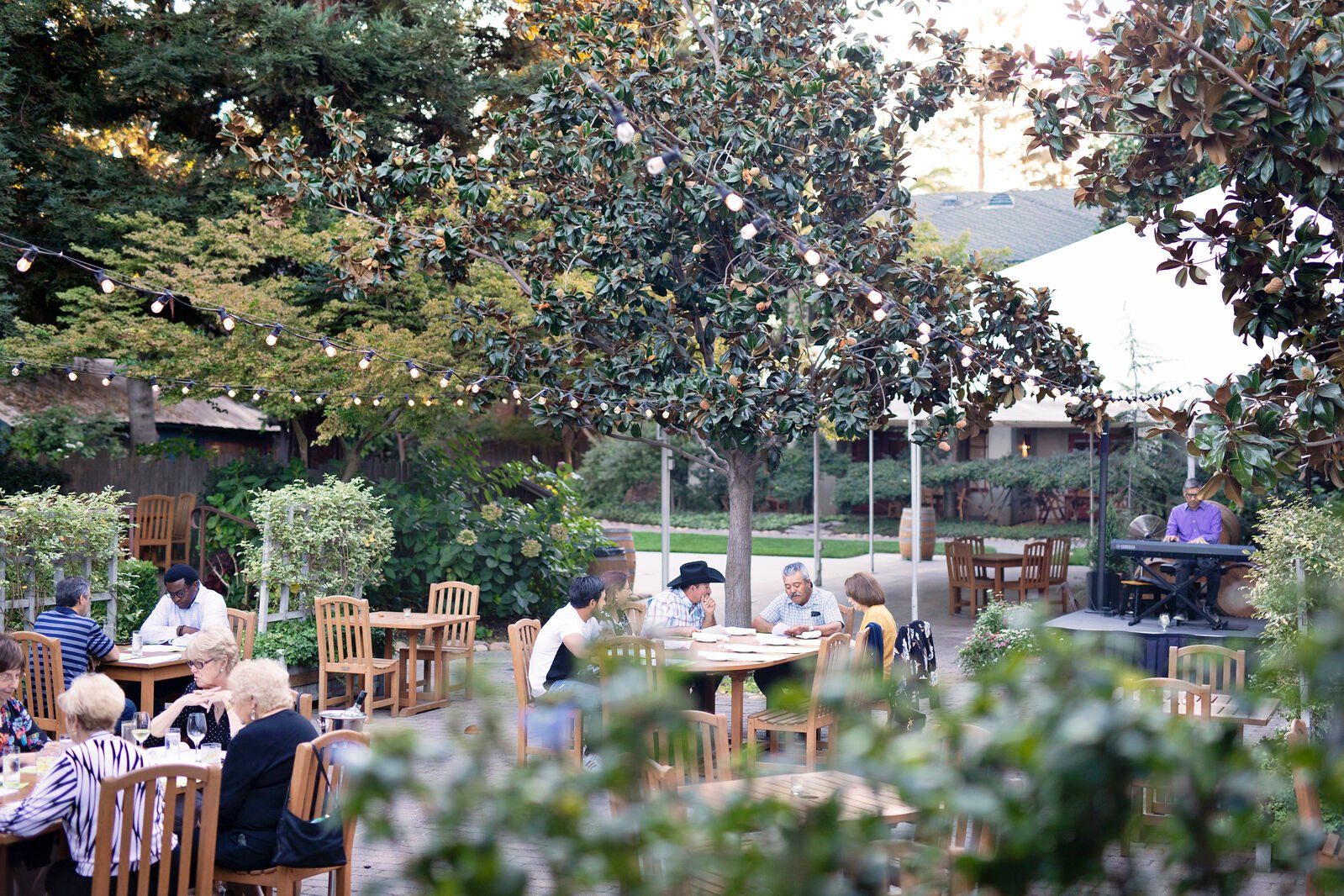
Expanding amid bumps and milestones
While Appellation Lodi is the first operational hotel for the fledgling brand, Palmer and Hunsberger have ambitious plans for additional locations.
However, the road to expansion hasn’t been entirely smooth. In fact, the brand’s next few projects illustrate both significant momentum and some growing pains.
First up is Appellation Petaluma, a high-profile project planned for downtown Petaluma in Sonoma County. Petaluma, with its own charming riverfront downtown, is not traditionally a major wine tourist town (though it’s part of the Sonoma Coast and Petaluma Gap wine areas). Appellation announced plans in early 2023 to build a five-story, 93- room luxury hotel there on an empty lot at Petaluma Boulevard South and B Street. The proposed hotel would include a 190-seat Charlie Palmer restaurant and a rooftop space designed for events.
“This proposal represents a rare opportunity to revitalize a long-blighted downtown property, generate critical new revenue for city services, and strengthen the economic ecosystem that sustains our local businesses, artists, farmers, and producers,” a group of downtown business owners wrote in an opinion piece published by the Petaluma Argus-Courier in May.
But not everyone in Petaluma is riding this bus. A group called Petaluma Historic Advocates is staunchly opposed to the Appellation hotel plan. Their concerns center on the hotel’s size and the potential impact on Petaluma’s historic small-town character.
The project requires a special downtown zoning overlay (approved by the City Council) to allow taller, denser development on that site — and opponents have fought that decision at every turn. They gathered over 6,400 petition signatures — more than enough to force a citywide referendum on overturning the zoning change. In July, with the referendum pending, PHA filed a lawsuit against the city, claiming the new ordinance enabling the hotel is illegal and would “cause substantial and irreversible harm” to Petaluma and its residents. This legal battle has thrown the project’s timeline into question.
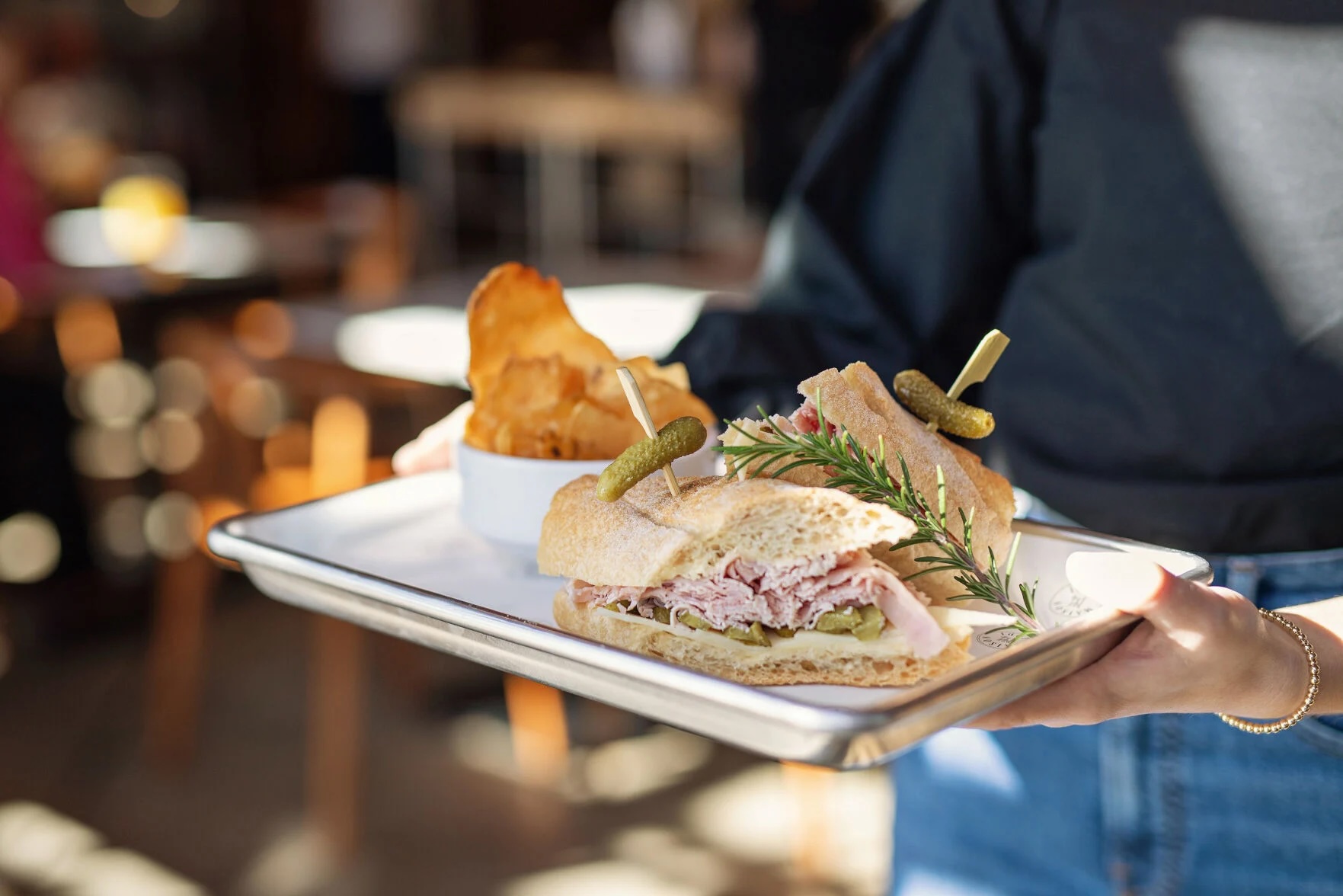
On paper, Appellation has optimistically listed an opening in the summer of 2026 for the Petaluma hotel, but given the uncertainties, that date is far from certain. Hunsberger and Palmer declined comment on the project.
In contrast to Petaluma, the Appellation project in Healdsburg, just a few miles north, has been moving forward and is nearing completion.
Appellation Healdsburg is particularly significant for Palmer and Hunsberger — both men live in Healdsburg and have deep ties to that community. Unlike Lodi (a renovation) or Petaluma (still on the drawing board), Healdsburg’s hotel is a ground-up new build on an 8.5-acre site just south of downtown. The project broke ground in March 2024 and represents a whopping $150 million investment. When it opens, slated for this fall, it will stand as the flagship of the Appellation brand — the first fully realized vision of their culinary-hospitality concept in a custom-built resort.
Plans for Appellation Healdsburg detail a 108-room luxury resort spread across 12 buildings with all the bells and whistles. Guests will find two pools, a high-end spa, 15,500 square feet of indoor-outdoor event space, and immersive culinary amenities. Two Charlie Palmer restaurants will anchor the experience: Folia Bar & Kitchen, a 204-seat signature dining room focusing on locally sourced Californian-Mediterranean fare, and Andy’s Beeline Rooftop, an open-air lounge for cocktails, small plates, and panoramic vineyard views.
What’s next
With Appellation Lodi now open and the paint barely dry, Charlie Palmer and Christopher Hunsberger’s culinary-meets-hospitality experiment is officially on the clock. The concept sounds good on paper: Wrap a hotel stay around local food, wine, and enough hands-on activities to convince guests they’ve gotten a full pour of the place.
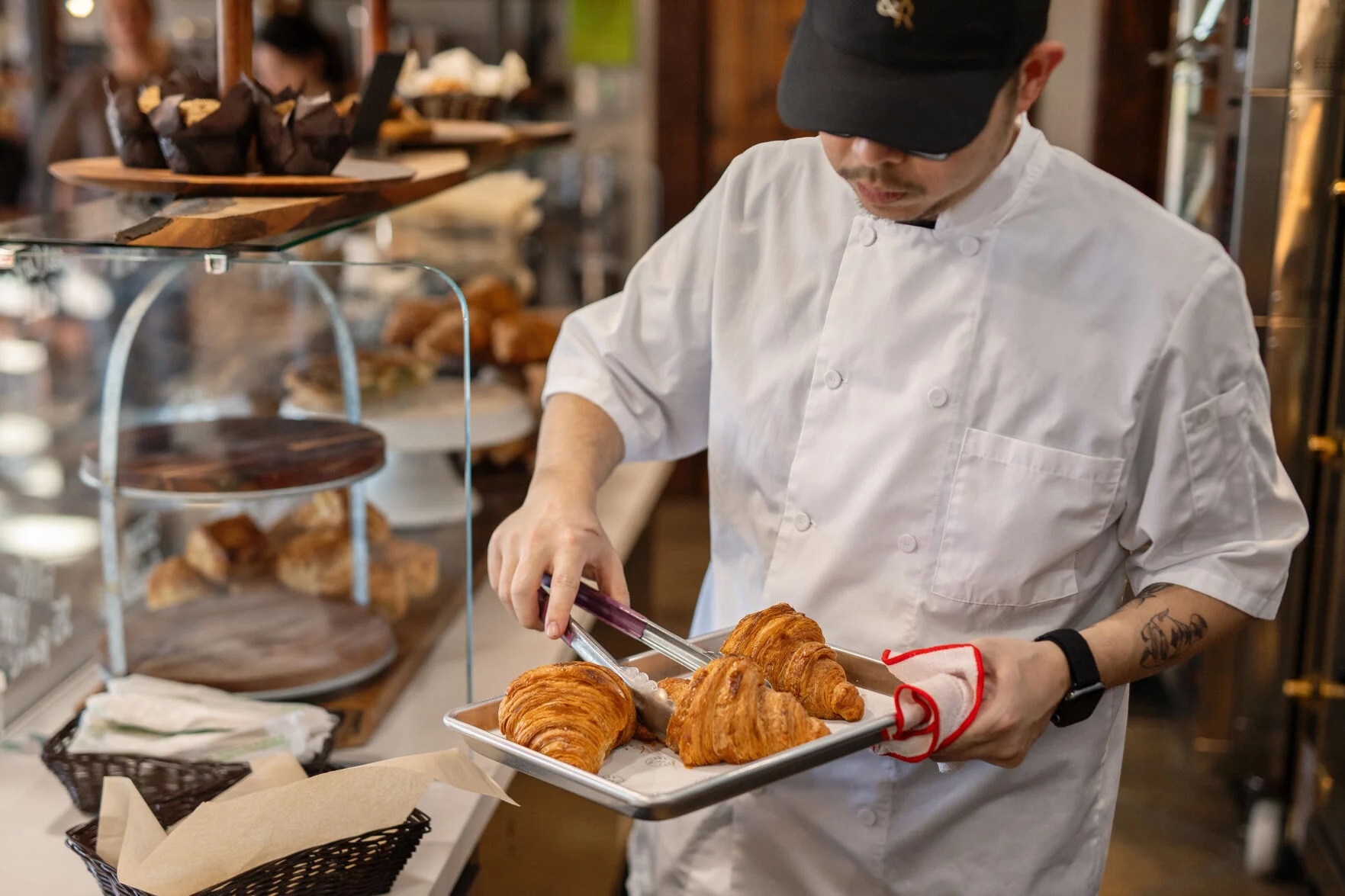
Is that enough to lure Bay Area drinkers east for Zinfandel weekends — or tempt Southern Californians to trade Highway 29 for Highway 99? It remains to be seen, but the quality in Lodi is certainly on the mark.
Elsewhere, the brand’s to-do list is busy. Healdsburg is next in line, a flagship in the making. A project in Morgan Hill is quietly moving forward. And Petaluma … well, Petaluma is Petaluma. For Appellation, winning over communities may prove as important as the menu.
For now, Lodi is the proof of concept. Visitors can grab a baguette and local Syrah at Maison Lodi, wander the revamped gardens, and settle in for a long dinner at Americana House. If the strategy works, they’ll feel the opposite of being stuck. They’ll want to come again.
The author was provided meals and accommodations by Appellation’s management as part of the research for this story.
